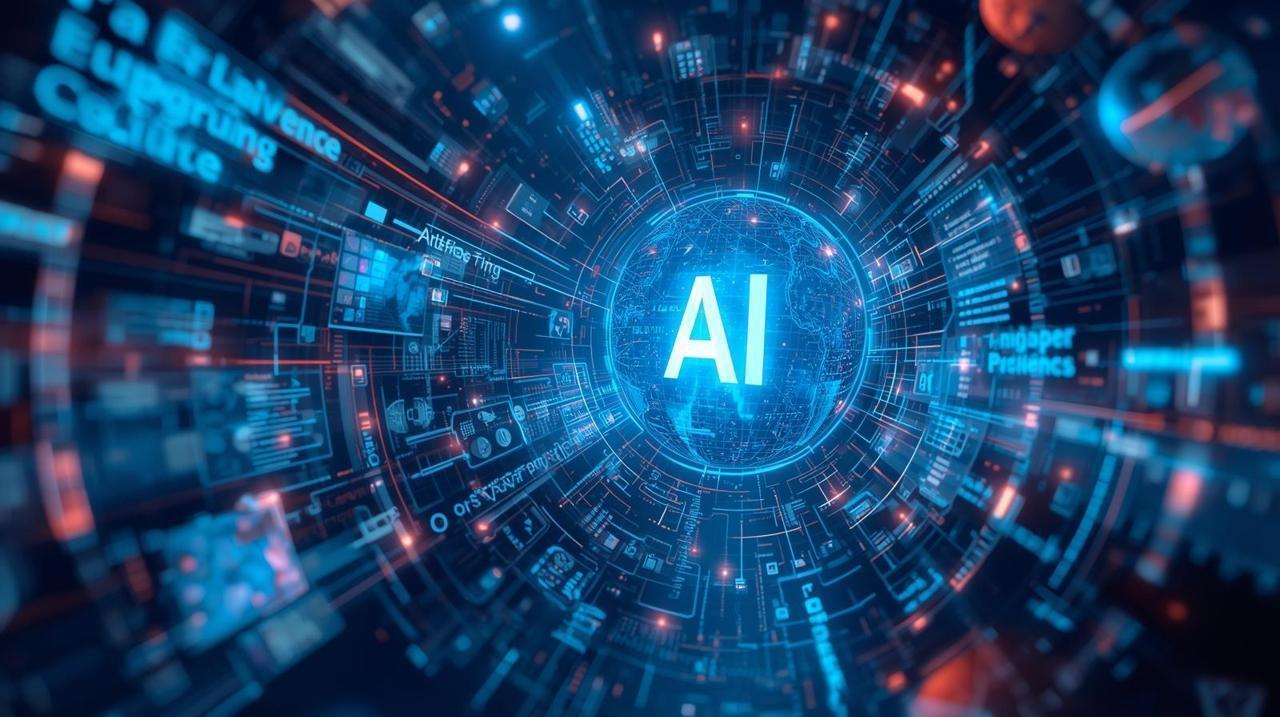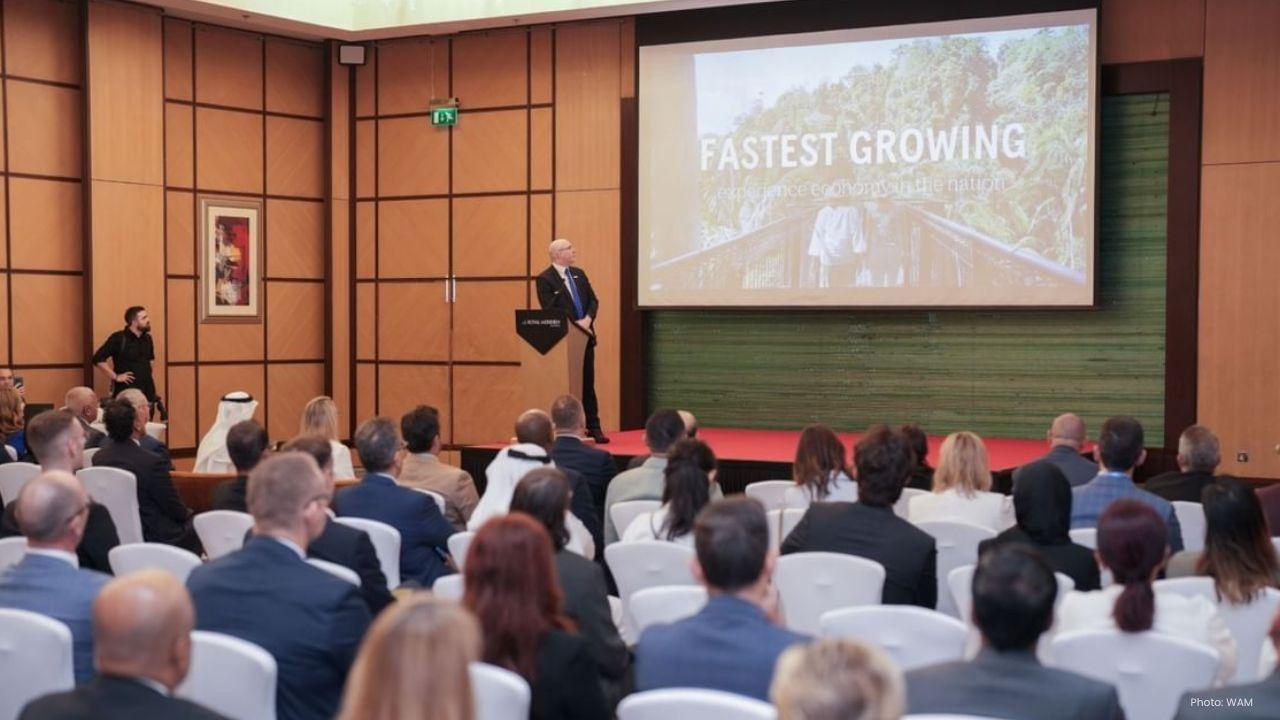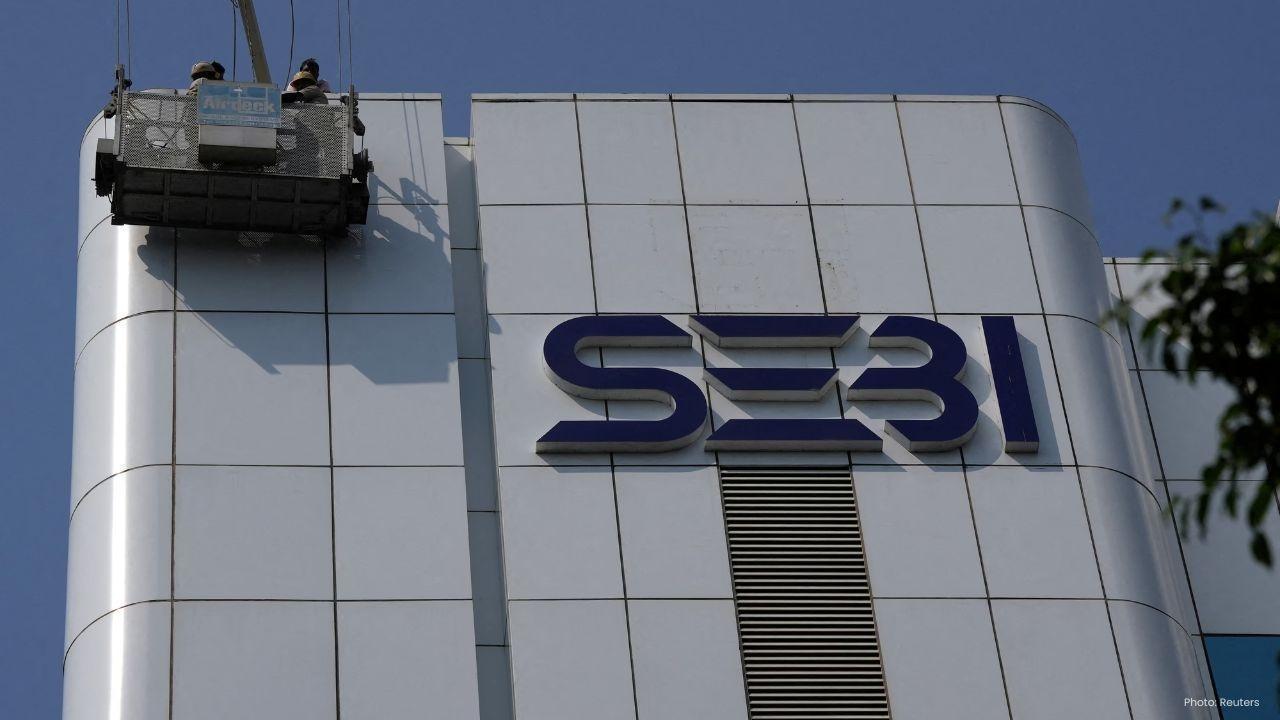
Join 10k+ people to get notified about new posts, news and tips.
Do not worry we don't spam!

Post by : Samjeet Ariff
Artificial Intelligence (AI) has swiftly transitioned from a concept of the future to a mainstream reality. Daily interactions with AI often happen unnoticed; whether asking Siri for the weather update or getting tailored recommendations on Netflix, AI is a subtle yet vital component of our lives.
As we approach 2025, the advancements in AI are accelerating, fundamentally altering how we communicate, learn, work, and manage our health. It’s not only revolutionizing industries but also reshaping the human-technology relationship. Here’s a look at how AI is redefining our daily experiences, fostering a more efficient, interconnected, and intelligent world.
AI seamlessly integrates into numerous devices and applications we depend on regularly. When navigating traffic via Google Maps, requesting Alexa to play music, or using facial recognition to access your phone, AI operates invisibly to enhance these experiences.
This technology harnesses user data to create smarter and more personalized interactions. Platforms like Netflix and Spotify curate recommendations based on your preferences, while smartphones adapt camera settings and battery usage according to your activity patterns.
AI’s prowess in analyzing large datasets and discerning preferences effectively makes it an unseen aide that simplifies everyday tasks.
The healthcare sector is witnessing some of the most significant transformations due to AI. It’s ushering a new era in diagnosis, treatment, and patient engagement.
AI-driven systems now scrutinize medical images—such as X-rays and MRIs—with incredible precision, often identifying ailments much earlier than conventional techniques. Predictive tools enable physicians to flag possible health concerns and suggest preventative measures.
Moreover, virtual health assistants and chatbots support patients in managing medications, booking appointments, and even extending mental health care. AI also aids hospitals in resource management and operational efficiency by forecasting patient influx and streamlining treatment protocols.
This evolution leads to healthcare that is faster, more accurate, and increasingly accessible, ultimately saving time and lives.
In education, AI is driving substantial shifts. Conventional teaching approaches are enhanced by personalized learning platforms tailored to individual student needs.
AI tools can pinpoint a student’s strengths and weaknesses, offering customized practice exercises and resources. Virtual tutors provide personalized help, enabling students to learn at their own pace, while educators benefit from automated grading and progress monitoring, freeing them to focus on interaction and mentorship.
This transition cultivates a more flexible, inclusive, and effective educational landscape for students globally.
AI is optimizing business functions, allowing companies to harness data-driven insights to improve efficiency. It’s used in sectors ranging from customer service and marketing to finance and logistics.
Chatbots handle basic consumer inquiries instantly, allowing human representatives to tackle more complex problems. Marketing divisions leverage AI analytics to anticipate consumer actions, shape targeted campaigns, and engage clients. In finance, AI tools detect fraudulent transactions, manage investments, and automate financial processes securely.
By reducing repetitive tasks, AI-driven automation enables workers to concentrate on strategic thinking, innovation, and creativity. Companies adept in leveraging AI gain a competitive edge and enhance their profitability.
Our communication patterns have drastically shifted with the advent of AI. Social media platforms heavily utilize AI to personalize feeds, suggest connections, and mitigate inappropriate content.
As you scroll through platforms like Instagram or TikTok, the content is curated not randomly but by AI that evaluates your interactions and preferences. AI-powered translation tools also facilitate communication across different languages, breaking down global barriers.
Yet, while these advancements are beneficial, they prompt serious questions regarding privacy and algorithmic fairness, emphasizing the necessity for responsible innovation as AI shapes communication.
Smart homes epitomize AI’s impact on daily life. AI-enabled gadgets are changing how we manage our households, enhancing comfort, security, and efficiency.
Smart thermostats automatically adjust temperatures based on user preferences. AI-driven security systems can identify known individuals and alert homeowners to unusual activities. Voice-activated assistants can manage lighting, appliances, and grocery lists through simple voice commands.
These innovations optimize energy use, improve safety, and simplify everyday life, making homes not just connected but truly intelligent, adapting to real-time needs.
AI is steering the future of transportation and mobility solutions. Self-driving cars leverage AI to interpret road conditions and make instantaneous decisions for safety.
Real-time navigation apps like Google Maps provide optimal routes, traffic forecasts, and suitable travel times, while predictive maintenance in aviation and logistics ensures safe, efficient operations.
Moreover, AI is pivotal in crafting smart traffic management systems for cities, alleviating congestion and promoting fuel efficiency, resulting in safer, smoother, and more sustainable travel experiences.
AI-powered tools are revolutionizing finance management, providing instantaneous insights and automation capabilities. Banking applications employ AI to categorize expenditures, unveil saving potential, and deliver tailored investment recommendations.
Fraud detection algorithms operate in real-time, mitigating financial losses, while virtual financial advisors aid users in making informed budgeting and investment choices. These intelligent resources empower users to manage their finances while minimizing errors.
AI’s role in finance enhances security, accessibility, and smarter decision-making for individuals and businesses alike.
The creative and entertainment sectors are also undergoing a transformation, thanks to AI. It’s not only helping people consume content but also generating new creative works.
Music platforms utilize AI to compose or remix songs, while AI tools assist artists in creating digital art. Video games have become more engaging, featuring intelligent characters that react to player interactions. Streaming services employ AI to curate tailored content, ensuring users are always presented with something new to watch.
In filmmaking, AI enhances visual effects, assists in video editing, and even aids in scene simulation, expanding the creative horizons for artists, developers, and storytellers globally.
Despite the immense convenience AI offers, it also raises significant ethical challenges that must be responsibly navigated.
AI systems often rely on extensive data, leading to valid concerns around privacy and data protection. Furthermore, automation could potentially displace jobs in various sectors, highlighting the need for reskilling. Algorithmic bias is another area of concern, as AI may inadvertently reflect biases present in the data it learns from.
To foster fairness and transparency, organizations should prioritize ethical AI practices emphasizing accountability, inclusivity, and human oversight. Cultivating trust in AI is as crucial as driving technological advancement.
As we look forward, AI’s influence will only broaden. It's anticipated that AI will lead to breakthroughs in healthcare, education, climate science, and sustainable energy.
We are already witnessing instances of AI enhancing smart cities, optimizing traffic operations, and aiding medical professionals in conducting complex remote surgeries. As this technology matures, it will shift from automating tasks to empowering individuals, bolstering creativity, problem-solving, and productivity across all sectors.
The future won’t be a contest between humans and machines but a collaboration between intelligent systems and humans, working together to achieve unprecedented goals.
AI has advanced far beyond theoretical frameworks—it's now an integral part of everyday existence. From shopping and communication to learning and working, AI is continually reshaping modern lifestyles with remarkable speed and accuracy.
While awareness of ethical issues and data privacy is essential, the potential of AI to enrich human life is evident. The imperative now is to embrace AI responsibly, ensuring that it augments human capacity rather than diminishes it.
AI is not here to dictate our future, but to assist us in constructing it. As we delve into its vast possibilities, it is clear that the smarter the technology becomes, the more empowered humanity can be.










Aaron Rodgers to Retire as a Green Bay Packer
Aaron Rodgers confirms he will retire with the Green Bay Packers, cherishing 18 impactful years befo

Hamilton Reflects on the Loss of His Cherished Bulldog Roscoe
Lewis Hamilton shares heartfelt memories of his bulldog Roscoe, revealing how fan tributes aid him i

Lando Norris Finds Humor in Red Bull's Pit Wall Tape Removal Attempt
Lando Norris chuckles at Red Bull's tape removal attempt during the US GP, calling it a lighthearted

Alex Vesia Steps Away from World Series Amid Family Emergency
Dodgers' Alex Vesia takes a leave for a family issue, missing at least two World Series games, with

Bo Bichette's World Series Prospects Under Scrutiny for the Blue Jays
Blue Jays' manager assesses Bo Bichette's readiness for the World Series, exploring his role in the

Sharks Clinch 6-5 Overtime Victory Against Rangers with Celebrini's Hat Trick
Macklin Celebrini's hat trick paves the way for the Sharks' thrilling 6-5 overtime win over the Rang